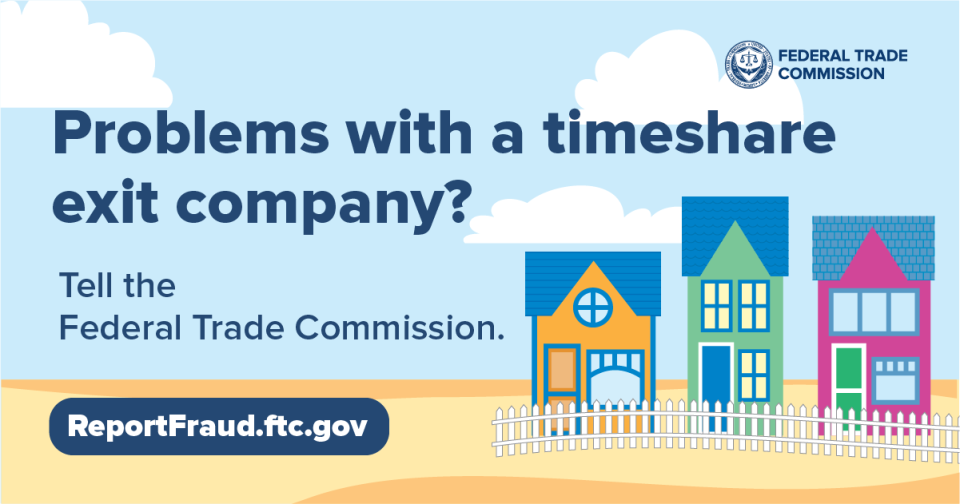Timeshare exit companies advertise a lot. Many "guarantee" they can get you out of your timeshare contract, but sometimes these companies are simply a scam. In a case announced today, the FTC said a company called Consumer Protection Law (one of its many names) didn’t deliver on all its promises. Read on to learn about staying ahead of the scammers.
According to the FTC, Consumer Protection Law targeted older adults, sending mailers to invite them to in-person presentations. There, they’d use pressure tactics to get people to sign up for their bogus services right away. Customers wound up paying huge fees (anywhere from $5,000 to $80,000)…but the company rarely delivered.
It sounds obvious, but: the best way to avoid timeshare exit scams is to have an exit strategy from the start. Vacation timeshare flyers often draw you in with pictures of sunny beaches and beautiful resort suites. If you go to an in-person timeshare presentation, the salespeople make you feel like you're already on vacation. But before you sign a timeshare contract, make sure you understand what you’re getting into — and how to get out of it.
If you’re already in a timeshare and want out, start by contacting your timeshare company. Some have exit programs that let you exit for a modest fee. But, if you think you want to hire a company to help you, take some steps before you sign:
- Research the company. Search online for the company's name, plus the words "scam" or "complaint."
- Study the paperwork on your own. Get all promises in writing. It’s your right.
- Ask about your ability to cancel the contract. In certain circumstances you have the right to a cooling-off period — a time when you can cancel the deal after you’ve signed the papers.
Problems with a timeshare exit company? Tell the Federal Trade Commission at ReportFraud.ftc.gov.


Ez advocates promised to get me out of my time share , vacation village but they have not done it ! I have been with them 2 years and no progress!!
In reply to Ez advocates promised to get… by Shirley Hammonds
I have been trying to deedback to VV for a few years after paying off its mortgage and they won't take it.
Biggest mistake of my life. Yes I own a paid off timeshare that I desperately want to exit. Grand Pacific Resorts doesn’t have an exit process. Your article isn’t helpful. How do I exit? What companies are reputable?
Is Wyndham Ovation trustworthy?
Can the government create new regulation or law to let Timeshare owner surrender or give it back to the company after certain years or paid off. Let's say after 5 years after paid off. The company can resell it. It's seem like win win situation.
Thank you
In reply to Can the government create… by Lya
YES! That is exactly what we need! My timeshare has been paid off for 20 years but i can't even give it back to the Resort who sold it to me. How can it be legal that a random financing company can ruin your credit for not using property that you own, and not wanting to pay a 'maintenance fee' for property you don't even use!! Grrr!!
In reply to YES! That is exactly what… by Janet
You're so right!!! It's very frustrating to find out you're obligated for something for life even though you haven't used it in years and there's no way out of it. I own a week at Shawnee in the Poconos and it's literally been 10 years since I've been able to use it. I want out!!!
In reply to YES! That is exactly what… by Janet
I am in the process of trying to get out of a timeshare. I called and cancelled it after 2 days and their still harassing me & put it in my credit report. King & Queen in Williamsburg. Therefore, I ignore the calls & I rip up the bills that come. They have finally left us alone. Now, I'm working with a credit bureau to get them off my credit report.
In reply to Can the government create… by Lya
Would believe this type of legislation is needed to protect consumers.